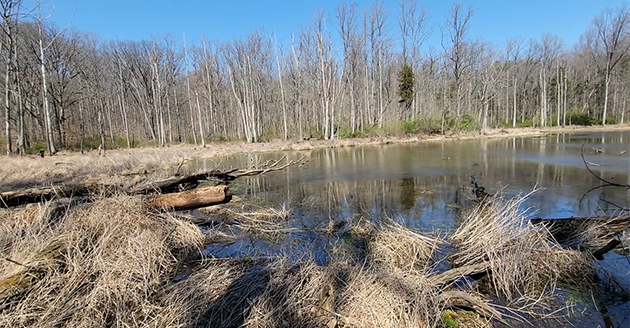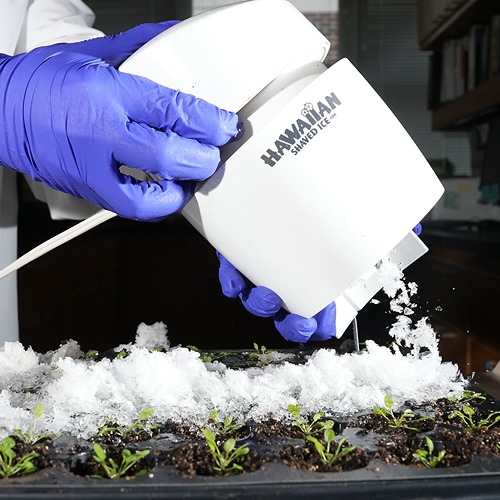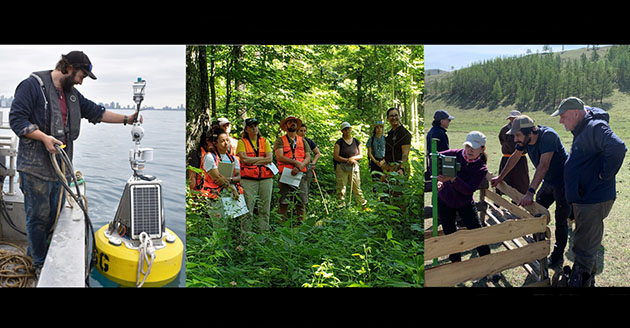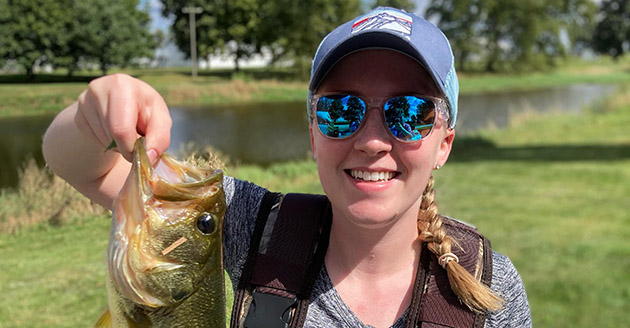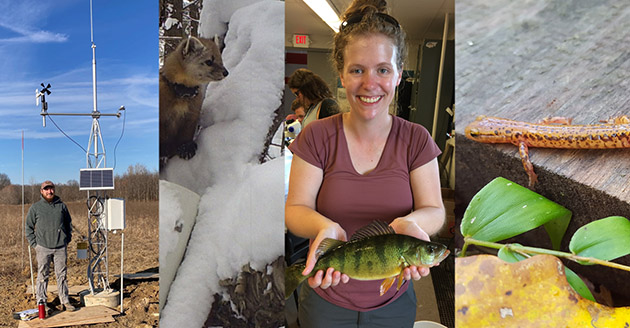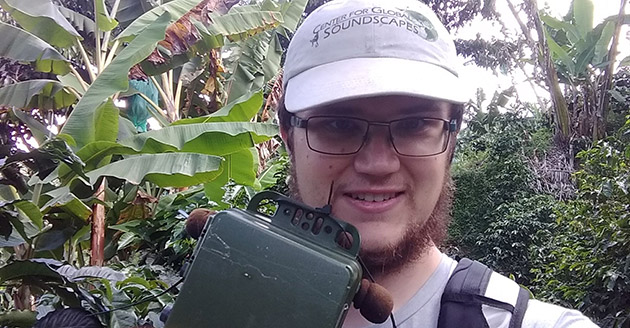Research - Ecology of Natural Systems
Develop knowledge of factors influencing complex interactions in ecological systems at multiple scales of biological organization ranging from physiological to community and eco-region units, with an emphasis on effects of anthropogenic drivers such as climate and land-use change and tactics for restoring and conserving ecological processes.
Faculty
Landscape
Dr. Clement Bataille
Isotope for population ecology, Isotope ecology and trophic chain reconstruction, novel isotope tools for terrestrial and marine ecology, isotopes for migration and dispersal
Dr. John Couture
Integrating chemical and landscape ecology to advance our understanding of the influence of trophic-level interactions on ecosystem functioning
Dr. Songlin Fei
Spatial analysis and pattern recognition, invasive species distribution modeling and forest ecosystem dynamic modeling
Dr. Bryan Pijanowski
Land-use modeling & spatial ecology,ecological assessment, natural resource economic impact analysis
Dr. Patrick Zollner
Behavioral ecology of ecological landscapes, forest management in changing landscapes, animal movements
Physiology
Dr. Paul Brown
Aquatic animal nutrition, physiology, biochemistry
Dr. Morgan Furze
Tree physiology and ecology, carbohydrate reserve dynamics, responses to global change
Dr. Matt Ginzel
Chemically mediated host location and colonization behavior of wood-boring insects
Dr. Douglass Jacobs
Forest tree regeneration including nursery culture, outplanting and early stand management
Dr. Maria Sepulveda
Ecotoxicology, development and application of molecular biomarkers of exposure and effects to environmental contaminants in vertebrate and invertebrate animal models
Population-Community
Dr. Andrew DeWoody
Population genetics, molecular ecology and evolution
Dr. Songlin Fei
Spatial analysis and pattern recognition, invasive species distribution modeling and forest ecosystem dynamic modeling
Dr. Reuben Goforth
Aquatic ecology, fish and insect species and communities in streams, species persistence, community ecology
Dr. Tomas Höök
Fish ecology and ecological modeling focusing on recruitment processes, foodweb interactions, bio-physical coupling, eutrophication effects and fish life history trait variation
Dr. Michael Jenkins
Effects of invasive species on ecosystem structure and function, forest ecosystem response to disturbances
Dr. Insu Jo
Plant ecology, forest community dynamics, ecosystem responses to disturbance and climate change
Dr. Michael Saunders
Oak ecology and silviculture, fire ecology, natural disturbance-based silviculture, dendroecology, growth and yield modeling
Learn More About Our Research
View our nine research areas along with our world-class faculty.
FNR research centers seek to support and enhance the research and partnership enterprise at Purdue University. The centers are valued and encouraged at Purdue as they create a venue for faculty to come together to pursue common goals. Forestry and Natural Resources have faculty and staff involved in six centers here at the University.
The Department of Forestry and Natural Resources maintains an impressive collection of state-of-the-art research and education facilities. These labs, green houses, and educational facilities are a fundamental component that enables our faculty and students to learn, make new discoveries, and engage our clients in using these discoveries to sustain our nation’s ecosystems and natural resources.
The mission of the Department of Forestry and Natural Resources is to develop and disseminate knowledge in the natural resource sciences associated with the protection, management, and sustainable use of terrestrial and aquatic ecosystems. One way the department accomplishes our mission is by owning and managing 24 properties located throughout the state to provide opportunities for research, extension, and education that achieves sustainable use of our natural resources.

